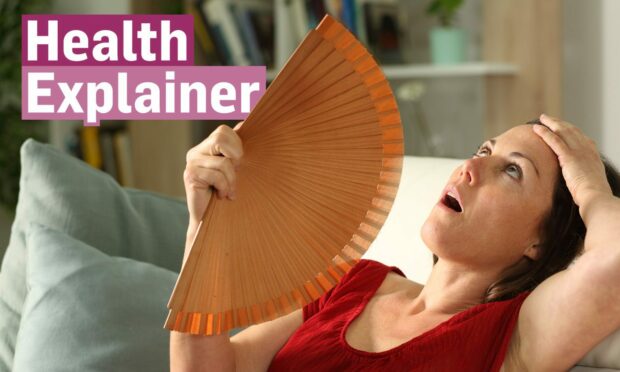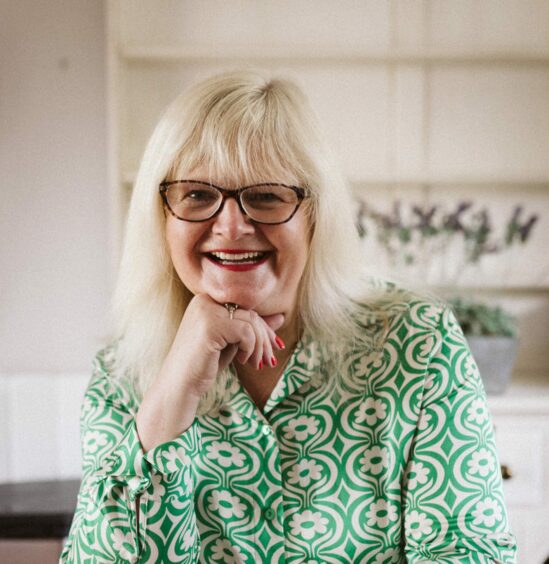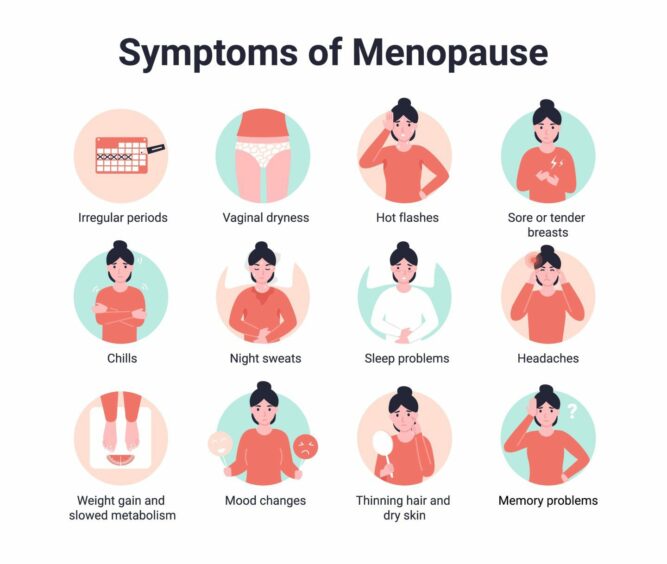Menopause is a major life event every woman goes through but it can affect each person in a different way.
Some women will experience few symptoms. But for one in four they can be so severe it has a significant impact on their lives.
Inverness midwife Maria Anderson coaches women on the difficulties they can face.
She’s shared some of her insights on World Menopause Day to help raise awareness of the impact of menopause symptoms.
Why does the menopause happen?
Menopause is when your periods stop due to lower hormone levels.
When you reach your mid 30s, your ovaries will start making less estrogen and progesterone and your fertility will reduce.
Most women experience menopause between the ages of 40 and 58.
In the months and years leading up to the menopause, known as perimenopause, women can experience a range of symptoms.
What are the symptoms?
The first sign of perimenopause can be a change in your periods, they can become irregular, lighter or heavier.
Many women also notice they have joint pains and hot flushes and struggle to get a decent sleep. This can make it difficult to function both at home and at work.
You might also start suffering from severe headaches, mood changes, anxiety or depression.
Brain fog can leave you struggling to remember information, or leave you struggling to concentrate on simple tasks.
What impact can menopause symptoms have on you?
Maria, who worked for NHS Highland for 19 years, says many women find the symptoms are challenging to cope with.
“Four out of five women are affected by it every day and there are a million women leaving work in the UK because of menopause symptoms,” she says.
“Yet we’re not encouraged to show emotion for fear of being seen as hysterical.
“So, what’s the alternative? We hide behind a mask.”
The coach says the symptoms of menopause can have a severe impact on women leaving them experiencing extreme fatigue, low confidence and a loss of identity.
How can you get help?
Speak to your GP if you are experiencing symptoms you are struggling with.
If you are under the age of 45 you could be offered a blood test to measure your hormone levels or to rule out other causes.
HRT may be an option to replace hormones that are missing.
“Hormone Replacement Therapy is only part of the solution,” Maria says.
“A lot of women don’t want to or cannot take this option.
“There are a whole range of alternative options and it’s time to break those barriers so menopause becomes part of everyday conversation, these changes will positively impact our future generations.”



Conversation